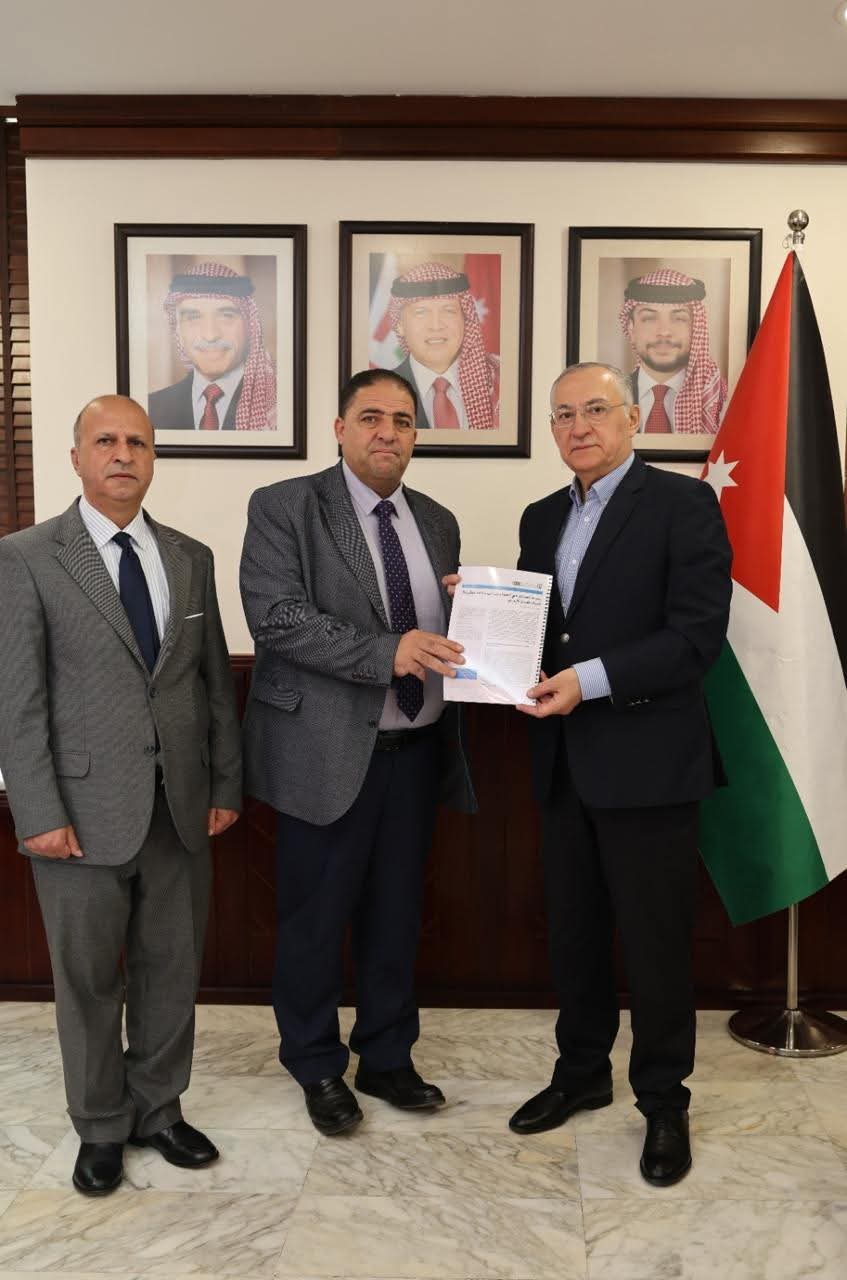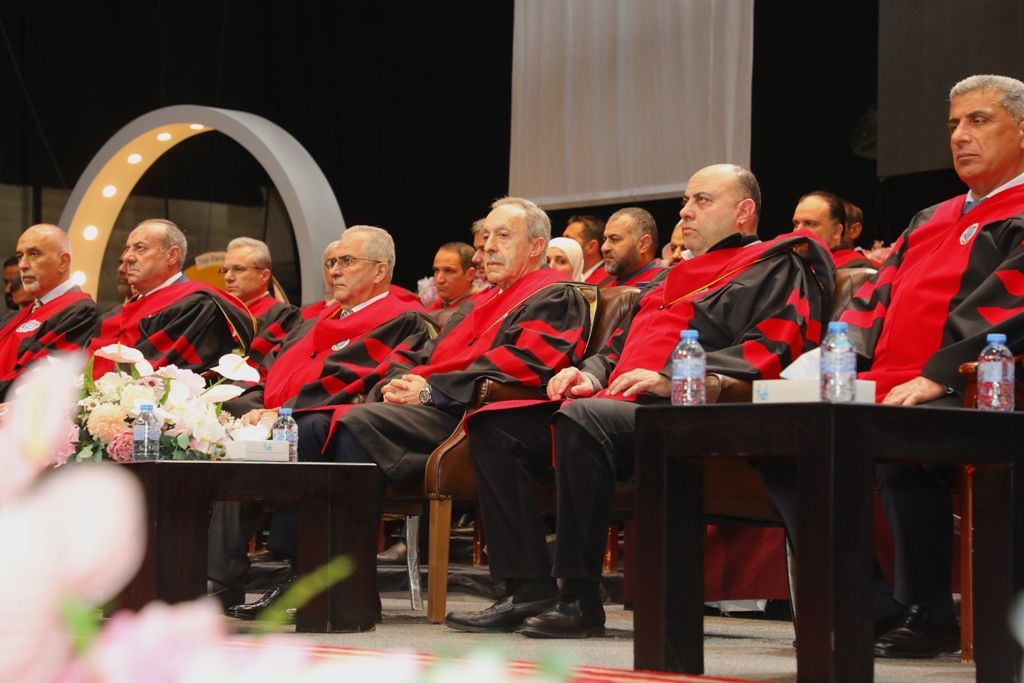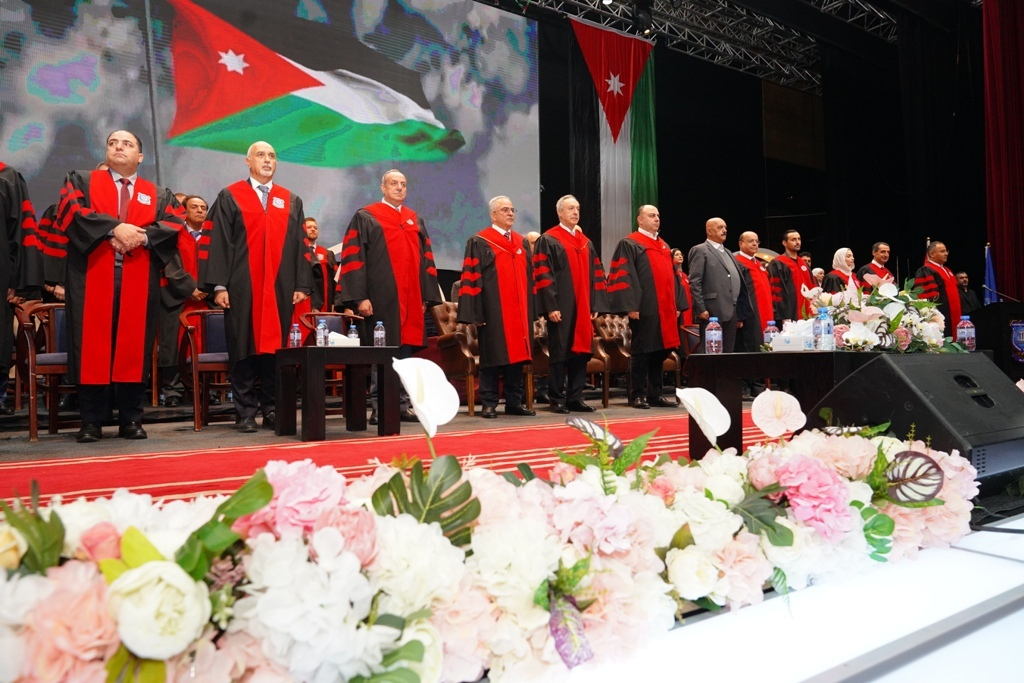Al-Ahliyya Amman University

13 April 2025
Dr. Muhannad Hijazi Receives AAU Study on Criminalizing Corruption in the Private Sector
Dr. Muhannad Hijazi, Chairman of the Integrity and Anti-Corruption Commission (JIACC), received a copy of a research study titled "Criminalizing Corruption in the Private Sector: An Analytical Study in Jordanian Legislation" from Dr. Osayd Dhunibat, Dean of the Faculty of Law at Al-Ahliyya Amman University. The study was authored by Prof. Khaled Al-Hurayyizat, a professor of law at the university.
During a meeting held at the Commission’s headquarters, Dr. Hijazi praised the significant efforts behind the study, which presents a range of important findings and recommendations. He commended AAU’s role in fostering a stimulating academic environment that supports both legal and scientific research.
Dr. Dhunibat expressed hope for further collaboration between the university and the Commission, particularly in areas related to research and studies combating corruption. He also appreciated the Commission's continued efforts in promoting transparency and upholding integrity.
Prof. Al-Hurayyizat provided an overview of the study, which was published in the journal of the Rule of Law and Anti-Corruption Center (ROLACC), under Lusail University Publishing House in Qatar, a specialized journal focusing on corruption-related studies. The research addressed the topic of corruption in the private sector, highlighting a legislative gap in Jordanian and several Arab laws, which often focus solely on corruption in the public sector.
He explained that the study outlines legal models that correspond to the most common forms of corruption in the private sector. It followed an analytical approach to assess the Jordanian legislator’s treatment of the issue and its alignment with relevant international and regional conventions.
Among the study’s key conclusions is that failure to criminalize corruption in the private sector has serious implications for a country's economic interests and compromises the protection of private sector assets. The study recommends the explicit inclusion of private sector corruption offenses in anti-corruption legislation, clearly defining the elements of these crimes and imposing appropriate penalties.





